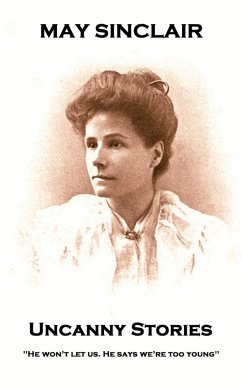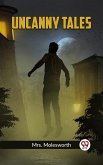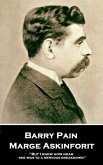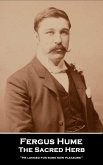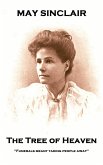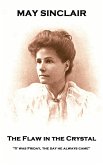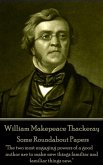Mary Amelia St. Clair was born on the 24th August 1863 in Rock Ferry, Cheshire.
Her father was a Liverpool shipowner who, after being made bankrupt, became an alcoholic and died whilst May was still a child. The family then moved to Ilford, just outside London and, after a solitary year of education, May was required to stay home and help look after her older brothers, four of whom were suffering from fatal congenital heart disease.
Despite this difficult start May was determined to pursue a literary career. From 1896 May wrote professionally to support herself and her mother. By the turn of the century she was producing not only poetry volumes but short stories, novels and some non-fiction. She was an active feminist and supporter of the Suffrage Movement, her literary talents help to shred ideas that the suffragists were driven by sexual frustration because of the shortage of men.
Her 1913 novel 'The Combined Maze', the story of a London clerk and the two women he loves, was highly praised by many, including George Orwell, while Agatha Christie considered it one of the greatest English novels of its time.
In 1914, she volunteered to join the Munro Ambulance Corps on the Western Front in Flanders. Although her time there was short-lived the experience was later reflected in both prose and poetry.
She published several poetry volumes as well as writing early criticism on Imagism and several poets of the movement. Her novels were now also influenced by modernist techniques and her supernatural short stories are increasingly seen as valuable additions to the genre.
From the late 1920s, she suffered from the onset of Parkinson's disease, and her writing career was effectively over.
May Sinclair died on the 14th November 1946. She was 83 and buried at St John-at-Hampstead's churchyard, London.
Her father was a Liverpool shipowner who, after being made bankrupt, became an alcoholic and died whilst May was still a child. The family then moved to Ilford, just outside London and, after a solitary year of education, May was required to stay home and help look after her older brothers, four of whom were suffering from fatal congenital heart disease.
Despite this difficult start May was determined to pursue a literary career. From 1896 May wrote professionally to support herself and her mother. By the turn of the century she was producing not only poetry volumes but short stories, novels and some non-fiction. She was an active feminist and supporter of the Suffrage Movement, her literary talents help to shred ideas that the suffragists were driven by sexual frustration because of the shortage of men.
Her 1913 novel 'The Combined Maze', the story of a London clerk and the two women he loves, was highly praised by many, including George Orwell, while Agatha Christie considered it one of the greatest English novels of its time.
In 1914, she volunteered to join the Munro Ambulance Corps on the Western Front in Flanders. Although her time there was short-lived the experience was later reflected in both prose and poetry.
She published several poetry volumes as well as writing early criticism on Imagism and several poets of the movement. Her novels were now also influenced by modernist techniques and her supernatural short stories are increasingly seen as valuable additions to the genre.
From the late 1920s, she suffered from the onset of Parkinson's disease, and her writing career was effectively over.
May Sinclair died on the 14th November 1946. She was 83 and buried at St John-at-Hampstead's churchyard, London.
Dieser Download kann aus rechtlichen Gründen nur mit Rechnungsadresse in D ausgeliefert werden.

